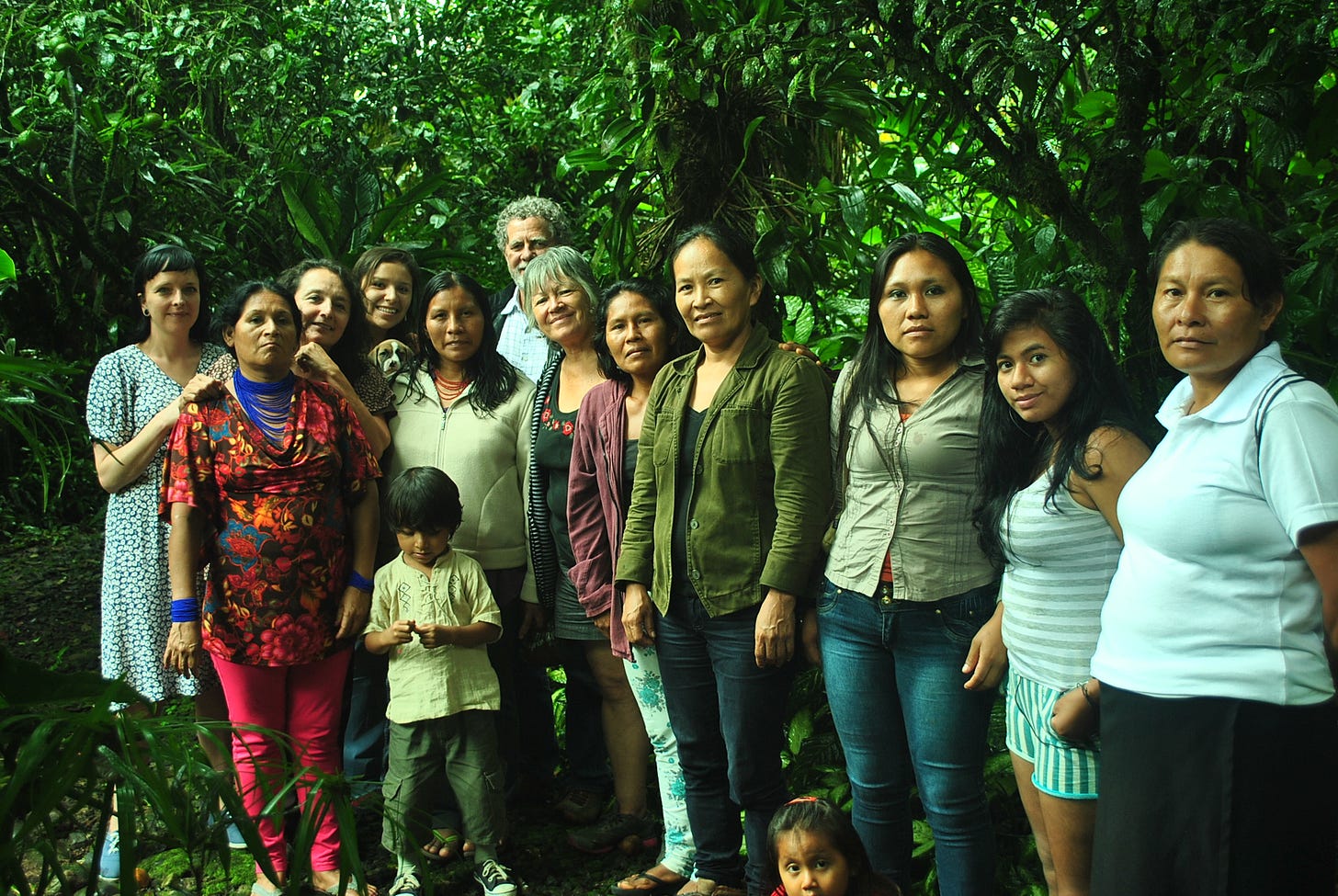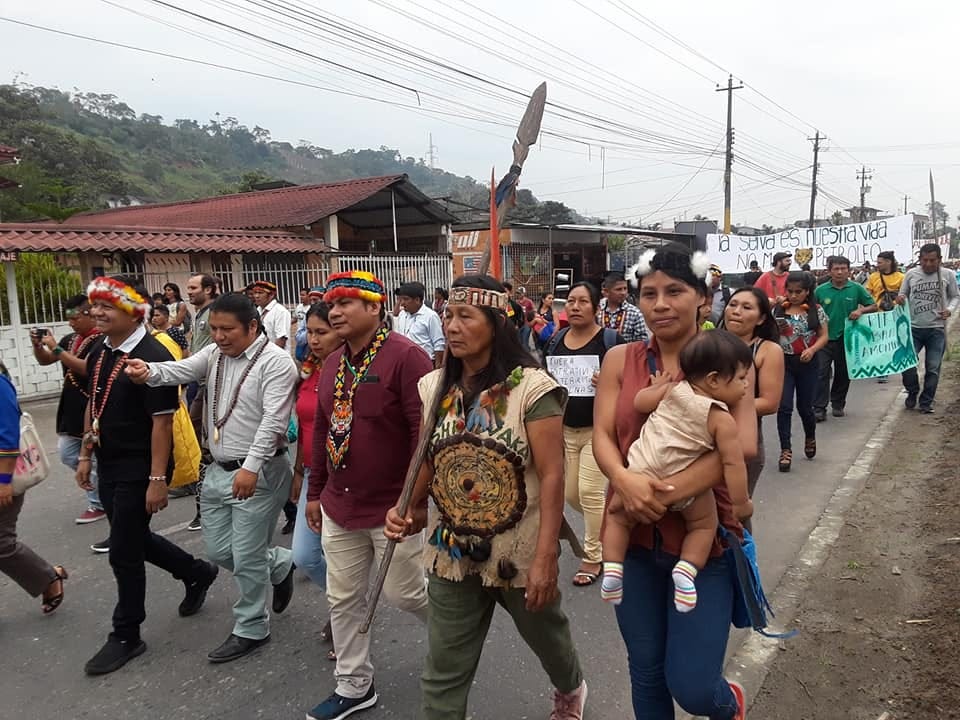In the Ecuadorian Amazon, five women are defending a population
"The government refuses to support us; they see our territory as theirs and they treat us as animals."
Ashiñwaka is part of the Sapara Women’s Association, representing a group of communities in the Sapara nation in Ecuador’s Amazon.
It provides training for Sapara women – in how to defend their territory and themselves, participate in local politics, and embrace climate-adaptive farming techniques.
Ours To Save spoke to Gloria Ushigua, Founder of Ashiñwaka, about kicking Andes Petroleum off Sapara land, getting arrested for activism, and the silence on issues faced by Indigenous women at COP26.
What is it about your work that you find people are most drawn to?
People are drawn to our work because we are actively protecting the Amazon rainforest. We are protecting the Amazon not just for ourselves but for everyone.
Our rainforest is called the lungs of the world and we want to make sure it stays alive and free from extraction, deforestation and pollution.
In the past, I have also met with Indigenous women from 14 different countries, some of them from the Amazon and from other Indigenous communities and countries.
As women, one of our main struggles is to ensure that we defend our territories but also that we protect our people's culture, traditions and language - these are also like the land: they need to be treasured and protected. Our work also focuses on protecting our medicine and our ancestral knowledge. As Amazonian women we are working hard to defend Indigenous rights on many fronts.
Why is it important to you that the human rights of Sapara women are protected?
Because we are human too, we have rights like any person. The Sapara population is almost extinct. Only a few of us are left. We are five women fighting for Sapara people and making these trips to speak about the issues in our land, to deliver our message.
The remaining women are back in our community, protecting the rainforest. As women, as mothers, we are like the land, we are like plants. When we die, we leave our seeds so new offspring can grow. This is why we protect the land, because we care about what will happen to our children and grandchildren.
We want the land to remain safe and well, so the next generations can enjoy it the way we did when we were children.
How has the Ecuadorian government responded to your campaigns so far, and how can they support you further?
The Ecuadorian government has never supported our work, our fight as women.
Instead, the government sees oil and resources which they want to use for the development of the country, of big urban centres, but not for the wellbeing of Indigenous people. The government refuses to support us because they see our territory as theirs and they treat us as animals.
The government says that Indigenous people are not the owners of our ancestral land and that we have no right to our land.
But we do have rights to this land, that's why we defend and protect our territory. In 2015, the government tried to arrest me and put me on trial. It was a tactic to silence me and my fight. Thanks to Amnesty International, I was able to remain free, however, my case remains open.
Part of your work focuses on training women to engage in climate change negotiations. What were you hoping would be discussed at COP26?
I would have liked to see more discussions around the struggles that we face as Indigenous women.
Many women like myself came to COP26 but we were not given the spaces to talk, to take part in official negotiations. As women, we tend to be the main defenders of the land, because we ensure our territories are safe for our families and that food can grow.
With climate change, this has become more challenging. The weather is changing and this has made it harder to collect food, but also illegal extraction of resources in our territories brings a lot of threats. Our land dies and with that the food and water we need to survive. We are also being killed: women and children are disappearing or found dead, and I have received multiple death threats and attempts to be killed. All of these are issues other Indigenous women are facing but no one is talking enough about this.
During COP26, I managed to leave our message but I know this has been harder for some Indigenous women, because they don't have the connections or means to deliver their messages or even come to COP.
What have been your most successful campaigns so far, and why?
Our most successful campaign was a few years ago when we stopped the extraction of oil in our territory.
Our government had received money from Andes Petroleum to start the exploitation of oil wells in Sapara territory. We became aware of this and tried to physically stop them. When we saw this wasn't possible, human rights organisations in the US helped us to travel to California and protest outside the Chinese consulate. A Chinese activist helped us to translate our message for the Chinese press. All of this helped to put pressure on Andes Petroleum.
Eventually they stopped their work when they realised Sapara people had not been consulted about the extraction of oil in our territory. I am proud and glad we were able to stop them.
We will continue fighting to protect our rainforest.
Ashiñwaka recently came runner-up in the Ashden Awards for natural climate solutions. This interview was conducted by Imaan Asim, and translated by Natalia Equihua.






